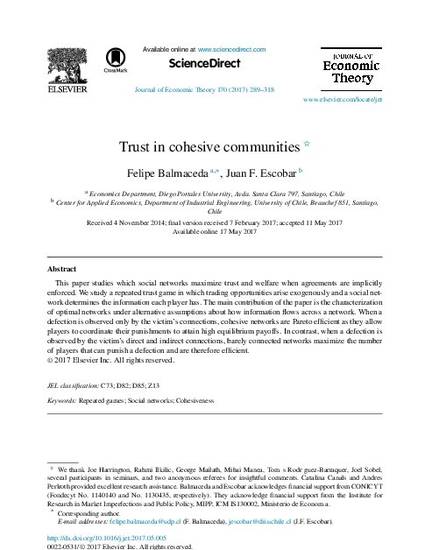
Article
Trust in Cohesive Communities
Journal of Economic Theory
(2017)
Abstract
This paper studies which social networks maximize trust and welfare when agreements are implicitly enforced. We study a repeated trust game in which trading opportunities arise exogenously and a social network determines the information each player has. We show that cohesive communities, modeled as social networks of complete components, emerge as the optimal community design. Cohesive communities generate some degree of common knowledge of transpired play that allows players to coordinate their punishments and, as a result, yield relatively high equilibrium payoffs. We also show that when news swiftly travel through the network, Pareto efficient networks are minimally connected: the removal of any link isolates some community members. Our results then clarify a sociological debate on the merits of different social structures to foster cooperation and trust.
Keywords
- Trust,
- Repeated Games,
- Incomplete Information,
- Cohession,
- Networks
Disciplines
Publication Date
Summer July 16, 2017
DOI
https://doi.org/10.1016/j.jet.2017.05.005
Citation Information
Felipe Balmaceda and Juan Escobar. "Trust in Cohesive Communities" Journal of Economic Theory Vol. 170 (2017) p. 289 - 318 ISSN: 0022-0531 Available at: http://works.bepress.com/felipe_balmaceda/13/
